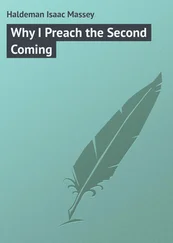Her hands always smelled of the lotion she was continually rubbing on the backs of Tomo’s dry arms. In the bleak light, the two of us leaning against the graves. Her making small piles of gravel with her fingers, then smoothing them. Her fingers were always busy. Tomo on the other side of the graves, drunk off chocolate in his car seat, strapped in, an umbrella propped over him. I was more exhausted after lunch than at night. I lied. Mavala lied. We said we didn’t need sleep. Sometimes we couldn’t help it, and in that light it was like falling asleep under interrogation.
Even then she was restless, talking to herself and fisting and unfisting her hands.
Obadiah said: All our whites are demented in one way or another. It would indeed be interesting to come to America for the sole purpose of observing normal whites. This is not to say that our blacks are lacking in idiosyncrasies. Do you think it’s the sun?
Our closest neighbor, Krieger, we saw only behind the wheel of a speeding bakkie. When he drove across Goas, he scattered anything in his path; boys, goats, teachers. It happened twice a day. Krieger on his way to and from the dorp. Krieger’s truck wings around the church, rumbling across the ruts in the sandy road, then careens across the soccer field in the middle of a game. A fluffy-white-haired honking murderous Santa bellowing, Halloo! Halloo!
According to the principal, Krieger had a binding legal right to drive straight across the soccer field. Once, I spoke up about it during morning meeting. I usually kept quiet, but I felt the behavior of a white was something within my purview to comment on.
“Seems a little dangerous,” I said.
“He holds an easement,” the principal said. “I’ve seen the document, which was duly notarized in Windhoek.”
“He can’t drive around the field?”
“Why should he drive around when the document gives him the right?”
“To spare life and limb.”
“Did I not say the document was duly notarized?”
*
Soccer. A round-robin tournament. We’re holding a set of Pohamba’s betting forms. That wet mimeograph ink, that deep indigo you couldn’t wash off. It dyed your hands purple for weeks. Made you high if you sniffed it and we sniff it. The pool is set at fifteen rand with a double on the last match. It’s been nil-nil for as long as anybody can remember. We’re wilting in our seats like unwatered geraniums.
“Watched high soccer is a lot more interesting,” I say.
Pohamba shouts, “Can’t you get it right? Football. It’s an offense on our culture.”
I wave him away. I’ve discovered something else. If you watch the ones without the ball it’s even better. Their feet. How every move is a beautiful anticipation. The ball is only incidental to the dance. Which is the answer to the mystery. Not only isn’t it about scoring, it isn’t even about the ball. I sniff the betting forms, understanding soccer, proud, loving it, between being bored and sleepy, when suddenly from around the church comes Krieger, roaring, barreling, honking, hallooing. His white arm banging the outside of the door, his fury of white hair waving in the wind. “Run for your lives, boys!” And the boys do. They dive, they tumble. They think it’s hilarious. They think everything’s hilarious. Krieger drives on toward the C-32. Play resumes.
“One of these days that Nazi is going to kill an innocent,” I say.
Obadiah raises a Sherlockian brow. “Nazi?”
“Why not? He’s the right age.”
“Which doesn’t necessarily mean —”
“The Nazis here never even had to learn Spanish.”
“Is not a central tenet of your justice system the transcendent concept of innocent before proven guilty?”
“This isn’t a court. This is Goas.”
“That’s true,” Pohamba says. “No justice here.”
Mavala stands. “You’re all ridiculous.” She slaps twenty rand on Pohamba’s desk. “Put it on United Africa in the next round.”
We watch her walk up the road. Tomo remains. He’s digging a tunnel beneath Vilho’s chair.
I turn to Obadiah. “Look, I’m simply asking for a little empathy for another marginalized people.” (Residual phrase fortuitously recalled from Prof E. L. Cloyd’s Sociology 202, Bowling Green State, Larry Kaplanski’s final grade: C+)
“A little empathy?” Obadiah says. “If empathy was money —”
Score! Kanhala with the header.
Krieger’s other claim to fame is that he shoots zebra in the Erongos and donates the meat to the school. Zebra meat has a distinctive stink. It’s acrid and gamey at the same time. Only the most meat-hungry boys eat it. But it does make for good biltong. When it’s dried out, you can’t smell it as much. Very chewy. So chewy you could chew it like gum, for hours. My own Standard Six Jeremiah Puleni walks around in the late afternoons and hawks zebra biltong to us for small change or old eraserless pencils.
Speak, quiet one.”
“About what?”
“About where you’re from.”
“You want to hear about Cincinnati?”
“Yes.”
“Not much to tell.”
“Try.”
I tell her about Cincinnati.
“That’s all?”
“Oh yeah. And at Christmas they put these white lights up at the zoo. It’s very beautiful. And there’s Taft.”
“Who?”
“William Howard Taft. Obesest president. Once he got stuck in a bathtub. They had to come chop him out with hammers. And Christ, Davey Concepcion. How could I forget Davey Concepcion? It must be the heat.”
“Who’s he?”
“You see the thing about Davey was that he wasn’t the superstar. I mean, we’re talking about a team with Johnny Bench, Caesar Geronimo, Tony Pérez, Joe Morgan. And Pete Rose. Hail, Pete Rose. In Cincinnati, he’s lord of earth and sky and hell. Fuck the Hall of Fame. Yes, but it was Davey who had something you couldn’t really name. Davey was the one with the intangibles. No ego, a little bat, just that great glove, but it was his spirit, his loyalty —”
“Like Kaplansk. He’s vice president.”
“Listen: I’d burn down this farm to be Davey Concepcion.”
“Tell me more.”
“He was a humanitarian. He’d send half his salary back to the poor people of the Dominican —”
“About you.”
“Me?”
“Yes.”
“There’s nothing to tell.”
“Anything.”
“I once loved a girl named Rainy Pinkus.”
“Her name was Rainy?”
“Yes. Rainy Pinkus.”
“Why not Snowy?”
“It was Rainy.”
“Did she love you back?”
“Not really.”
“Tell me another thing.”
“What?”
“About your childhood.”
“I herded goats at dawn.”
“Lies!”
75. INTOXICATIONISTS IN A DATSUN
Bottle of Zorba on the dash, long since emptied. Obadiah and Kaplansk. All that’s left are their voices, their bodies are gone, floated up, evaporated, poofed.
OBADIAH: I understand that many Talmudic blessings require repetition as a way of ritualizing one’s contact with God.
KAPLANSK: Really?
OBADIAH: In other words, God not as a bolt of thunder but there in the simple everyday moments, in the tying and retying of one’s shoes. In a belch, if you will.
KAPLANSK: Interesting. I hadn’t —
OBADIAH: I myself believe in absolutely nothing. At least not today. This of course is the paradox. One never knows when faith — like love — will wander back like an old dog you thought was dead. It would all be easier if it stayed away for good. Don’t you think?
KAPLANSK: Probably, but —
Читать дальше












